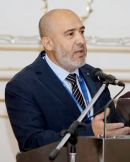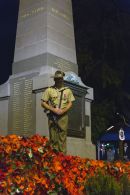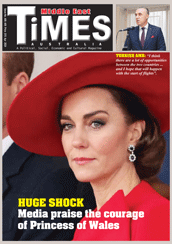| Cover |
| Lebanon continues to face uncertain future in wake... |
 |
Lebanon continues to face uncertain future in wake... While the world’s attention is now focused on the war in Ukraine, Lebanon continues to face crippling pressures due to hosting more than 1.7 million impoverished Syrian and Palestinian refugees. On top of this humanitarian disaster, Lebanon was hit hard by the COVID-19 pandemic and the Beirut explosion in 2020. Little wonder then that nearly 80 percent of the country is now below the poverty line; a financial plight which economists believe to be among the worst the world has seen in more than 150 years. On May 15, Lebanon held its first elections since the nation was plunged into chaos by those cascading calamitous events. The Hezbollah-led won with its coalition 61 seats in the 128-member legislature. The results also showed that the majority was still with the Free Patriotic Movement (FPM). Overall, the elections brought about a new shift in Lebanon’s turbulent balance of power, as no single political holds a parliamentary majority. Time will tell, of course, whether this eases or exacerbates the turmoil … but there are already worrying signs. Those ominous indications were evident even before voters went to the polls. It was assumed, for example, that six representatives would be elected by expatriate Lebanese, however, this process was abandoned due to amendments to the electoral law, just a day before the elections. Perhaps this change was a deliberate slap in the face for the Lebanese living in about 50 countries abroad who were suddenly deprived of their rights. Despite these concerns, some analysts believe the arrival of new faces in the Parliament may put Lebanon on the cusp of a “founding conference”. They expected that the Lebanese Forces and their allies would achieve a “notable balance” against Hezbollah and its allies, either to enter into a joint radical dialogue or to confront Lebanon with a greater danger, amid the diversity of the Sunni environment, the progress of the Lebanese Forces and the steadfastness of the Socialist Party, which would give “Saudi Arabia a greater opportunity against Iran for the sake of understanding”. Lebanese Prime Minister Najib Mikati, meanwhile. has appealed to the international community to help secure the safe return of Syrian refugees to their own lands. Beirut appears determined to expel the displaced Syrians as Lebanon’s besieged infrastructure struggles to cope with the overwhelming demands. We can only hope for the best in the face of one indisputable fact, which is the need for Parliament to move quickly and decisively to restore some aspects of normal life. Editor in Chief |
 |
 |
 |
|
|
|||||||||
|
|||||||||

















